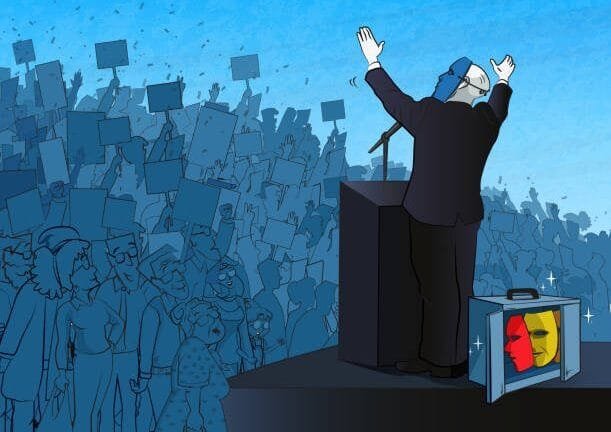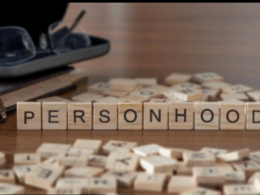Introduction
Hypocrisy, eye-service, and pretense are interconnected concepts that involve a discrepancy between what one claims to be or believe and what one is or does. These behaviors can manifest at various levels of life, which include: personal relationships, politics, religion, and social interactions. In today’s society, it’s not uncommon to encounter individuals who present themselves as paragons of virtue, justice, and equity. However, beneath the surface, their actions and behaviors often reveal a different story. This article aims to explore the concepts of hypocrisy, eye-service, and pretense, and how they can manifest in both our personal and public lives.
The Mask of Hypocrisy
Hypocrisy involves pretending to be virtuous when in reality it is a mere facade of dishonesty and deceit. It’s a form of deception that can be damaging to relationships, communities, and society as a whole. The Holy Bible, in Matthew 23:1-12, records that Jesus condemned hypocrisy in the Pharisees who prioritized outward appearances over inner righteousness. Similarly, in our daily lives, we often encounter individuals who claim to be advocates for social justice, environmental causes, or human rights, but their actions and behaviors tell a different story.
Hypocrisy can be moral hypocrisy, a situation where individuals condemn behaviors or actions in others that they engage in secretly. It can also be in the form of religious hypocrisy, where an individual claims to follow a particular faith or doctrine but fails to live according to its tenets and principles.
Eye-Service: Serving Appearances
On the other hand, eye-service refers to doing something solely for appearance’s sake or to impress others, rather than out of genuine commitment or conviction. It’s a form of superficiality that can be seen in various aspects of life, including workplaces, social media, and even places of worship. Whoever engages in eye-service prioritizes appearances over authenticity, a menace which most often leads to feelings of emptiness, disconnection, and disillusionment.
The Pretense of Virtue
Pretense involves making false claims or pretending to have qualities, abilities, or achievements that one doesn’t possess. It’s a form of deception that can be damaging to our relationships, reputation, and self-esteem. In today’s digital age, pretense manifests in various ways, including social media profiles that present a curated image or persona that doesn’t reflect reality. It can manifest in social interactions when individuals pretend to have interests or hobbies they do not have, and it also manifests in professional settings where individuals exaggerate their skills or experience just to gain an advantage.
The Consequences of the Vices: Hypocrisy, Eye-Service, and Pretense
The consequences of hypocrisy, eye-service, and pretense can be far-reaching and damaging. Anyone who engages in these behaviors risks losing the trust and respect of others, which in turn damages their reputation and compromises their integrity. Moreover, these behaviors can also lead to feelings of guilt, shame, and anxiety, which can negatively impact mental and emotional well-being.
Breaking Down the Fort of Facade
To break down the facade of virtue and cultivate authenticity in our lives, we need to consider the following, as it undoubtedly would help to eradicate the menace from the society and, at the same time, benefit us in several ways.
Self-reflection
This refers to examining one’s thoughts, feelings, and actions. When we engage in regular self-reflection, it helps in identifying strengths and weaknesses, recognizing patterns and habits, understanding motivations and desires, evaluating progress and growth, as well as developing self-awareness and introspection.
Authenticity
This refers to being true to oneself, without pretenses or pretending to be someone else. This can be through embracing individuality and uniqueness, being honest and transparent, aligning actions with values and principles, letting go of external expectations and validations, and cultivating self-acceptance and self-love.
Accountability
Accountability refers to taking responsibility for one’s actions, decisions, and consequences. It has to do with setting clear goals and expectations, being reliable, taking initiative, and taking proactive steps. It helps to build trust and credibility with others, develop a sense of personal responsibility, improve decision-making and problem-solving, and enhance personal growth and development.
Humility
Humility refers to having a modest and grounded sense of self, without excessive pride or arrogance. It helps to develop stronger relationships and connections, improve communication and collaboration, and enhance personal growth and development.
Humility involves recognizing limitations and weaknesses, letting go of ego and external validation, being open to feedback and criticism, and also cultivating empathy and compassion for others.
Conclusion
The facade of virtue can be a powerful mask that hides our true intentions, actions, and behaviors. However, when we expose hypocrisy, eye-service, and pretense, we can cultivate authenticity, integrity, and trust in our relationships and communities. By prioritizing self-reflection, authenticity, accountability, and humility, we can break down the facade and live more genuine and meaningful lives.
If you are passionate about writing and understand the power to shape culture through writing, please contact us immediately, and our representatives will walk you through how you can join our team of writers at the Africana Leadership Digest.













This is rapt
Life is supposed to be real, no pretences no hypocrisy.
Thanks for putting this piece together.
Thank you for taking time to read through our article, and thank you for the feedback as well.
We hope you found value for your time. Please do well to subscribe so you don’t miss our on our subsequent releases.